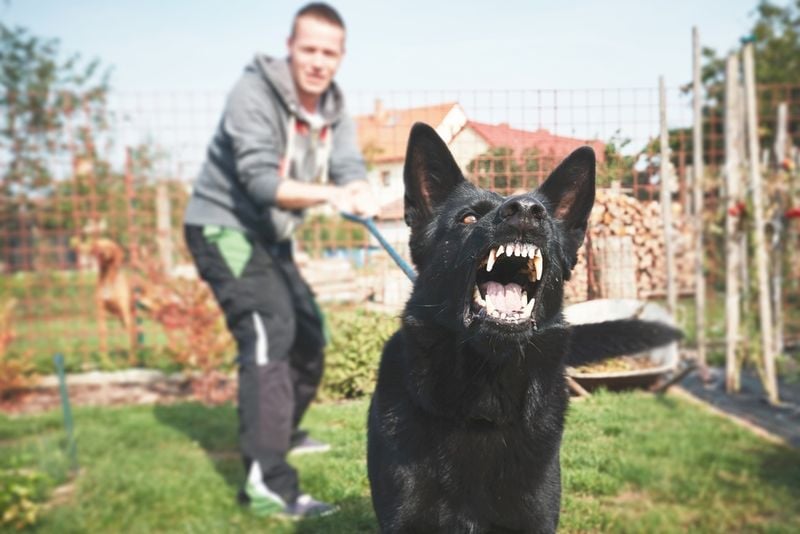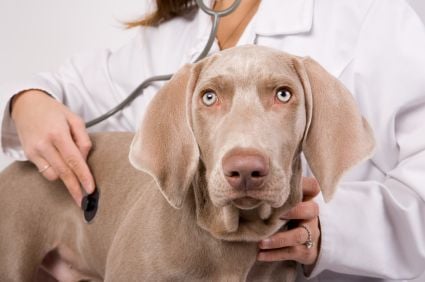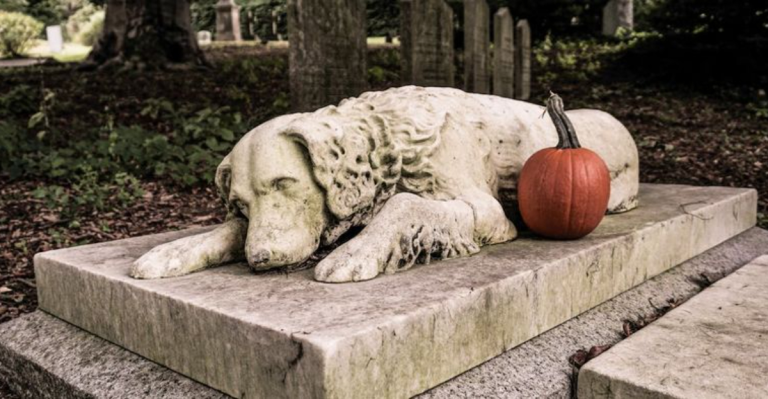13 Things Dogs Do When They Sense a Major Change in Their Life is Coming
Dogs always seem to know when something big is about to happen. Whether it’s a move, a breakup, a new baby, or even just a long trip, their behavior often shifts in subtle—but unmistakable—ways.
They don’t need a calendar or a conversation to understand change. Instead, they read body language, scent shifts, routines, and emotional tension like seasoned pros.
Some signs are sweet and heart-melting, while others hint at anxiety or confusion. But all of them speak volumes about your dog’s deep connection to you—and the environment you share.
If your pup is acting a little “off,” don’t brush it aside. It might be their way of preparing for a major life shift. Here are 13 things dogs commonly do right before everything changes—often before you even realize what’s coming next.
1. Become Clingier Than Usual
When dogs sense a major change, they might suddenly stick to you like glue. Perhaps you’ve noticed your furry friend following you from room to room, refusing to let you out of their sight.
This behavior can be heartwarming, showcasing their deep emotional bond with you.
They might pick up on your emotional energy, sensing that something significant is about to happen. Whether it’s a move, a new family member, or a long trip, they want to be close to you more than ever.
Their intuitive nature allows them to detect changes in routine or even the slightest shifts in your behavior, making them seek comfort and reassurance by being near you.
2. Start Acting Anxious or Restless
Anxiety can manifest in dogs through restlessness and nervous energy. Perhaps your dog starts pacing the floors, whining without a clear reason, or refuses to settle down.
These signs can indicate that they are picking up on changes in their environment.
Dogs are creatures of habit, and any disruption can easily unsettle them. Whether there’s a change in your work schedule or new furniture being moved in, these subtle differences don’t go unnoticed.
Their heightened senses make them more alert to these changes, leading to restless behavior. Providing them with extra attention and routine can help ease their anxiety during such transitions.
3. Lose Interest in Their Favorite Activities
Imagine your lively pup suddenly ignoring their beloved tennis ball or squeaky toy. This loss of interest can be perplexing, especially if they usually jump with joy at the sight of playtime.
They may seem distant or preoccupied, mirroring the uncertainty they sense around them. It’s as if their usual enthusiasm for fun has been overshadowed by something they can’t quite explain.
In these moments, they might need more comforting than ever, seeking solace in your presence rather than their toys. Understanding this shift can help you provide the support and reassurance they crave.
4. Sniff Everything—Excessively
Your dog’s nose might go into overdrive when they sense a change is coming. Suddenly, they sniff everything in sight—luggage, new furniture, or even your clothes.
This heightened sniffing can be their way of gathering information about what’s different around them. It’s as if they’re trying to piece together the puzzle of change with their keen sense of smell.
Their inquisitive nature drives them to investigate any unfamiliar scent that crosses their path. It’s both endearing and a reminder of their innate curiosity and intelligence.
5. Vocalize More Than Usual
Imagine the usual quietness of your home disrupted by a chorus of barks, whines, or even howls. Your dog might suddenly become more vocal, expressing confusion or concern through their increased chatter.
This vocalization is not just noise; it’s their way of communicating with you, alerting you to the fact that they’ve sensed something amiss.
They may be responding to changes in routine or picking up on your emotions. Just like a toddler trying to grab your attention, this vocal behavior is a plea for reassurance.
6. Follow You From Room to Room
Shadowing behavior in dogs can intensify when they sense something big is about to happen. Maybe your dog won’t let you out of their sight, following you from the kitchen to the living room and even the bathroom.
This behavior is more than just a desire for companionship; it’s a need to be involved in whatever change they’re anticipating.
Their loyalty and dedication shine through as they stay close, eager to provide comfort and be comforted. It’s a touching display of their unwavering attachment to their human.
7. Sleep in New or Odd Places
Has your dog chosen a new favorite napping spot near the door or beside your suitcase? Dogs might begin to sleep in odd places when they sense a change on the horizon.
They could be positioning themselves strategically to not miss a moment of the transition. This shift in sleeping habits reflects their instinctual desire to stay connected to their environment.
Whether it’s the hallway or a corner they’ve never used before, these new spots can offer them a sense of security and readiness.
8. Suddenly Become More Protective
When dogs become unusually protective, they might bark at unfamiliar sounds or show hyperawareness of strangers. This heightened protective instinct can be their way of responding to perceived threats.
Their loyalty and love for you drive them to stand guard, ensuring your safety during times of change. It’s their way of saying, “I’ve got your back,” even if you’re not aware of the potential risks they perceive.
This behavior can be both comforting and a reminder of their deep-seated instincts.
9. Ignore Commands or Training
An obedient dog suddenly ignoring familiar commands can be puzzling. It’s as if their mind is elsewhere, preoccupied with the emotional tension in the air.
Their usual focus might wane, leaving you wondering if they’ve “forgotten” their training. This behavior isn’t defiance but a reflection of their sensitivity to change.
Offering patience and understanding during these moments can help them regain their focus and adapt to new circumstances.
10. Start Guarding Personal Items
Have you noticed your dog suddenly guarding toys, blankets, or even your belongings? This behavior can be their way of anchoring to familiarity amidst the uncertainty of upcoming changes.
They might become possessive, reluctant to share, or overly protective of their cherished items.
It’s a heartfelt attempt to hold onto the known and the comforting, providing a sense of stability in a world that feels unpredictable.
11. Show More Affection Than Usual
Licking your hands, nuzzling closer, or giving you long, soulful stares—your dog might become your shadow of affection.
They seem to want to reassure you, offering comfort as if to say, “I’m here for you.” This increased affection is their way of forging a stronger bond, preparing both you and themselves for what’s to come.
These moments are tender reminders of their empathy and understanding, often offering comfort in times of uncertainty.
12. Try to Escape or Wander
Ever noticed your dog bolt through an open door or pull extra hard on the leash during walks? This desire to escape or wander can stem from a deep-seated instinct.
It’s as if they’re searching for something or trying to answer an unspoken call. The change in the air might prompt them to seek out new experiences or territories.
Keeping them engaged and secure during these times is crucial, ensuring they don’t wander too far from safety.
13. Refuse Food or Treats
A dog’s disrupted appetite can be a telling sign of stress. Has your usually voracious eater turned its nose up at dinner? Refusing food or treats can indicate that their internal stress radar is on high alert.
This change in eating habits might seem alarming, yet it’s a common response to emotional upheaval.
Offering them comfort and understanding, while maintaining regular mealtime routines, can help ease their transition back to normalcy.



















